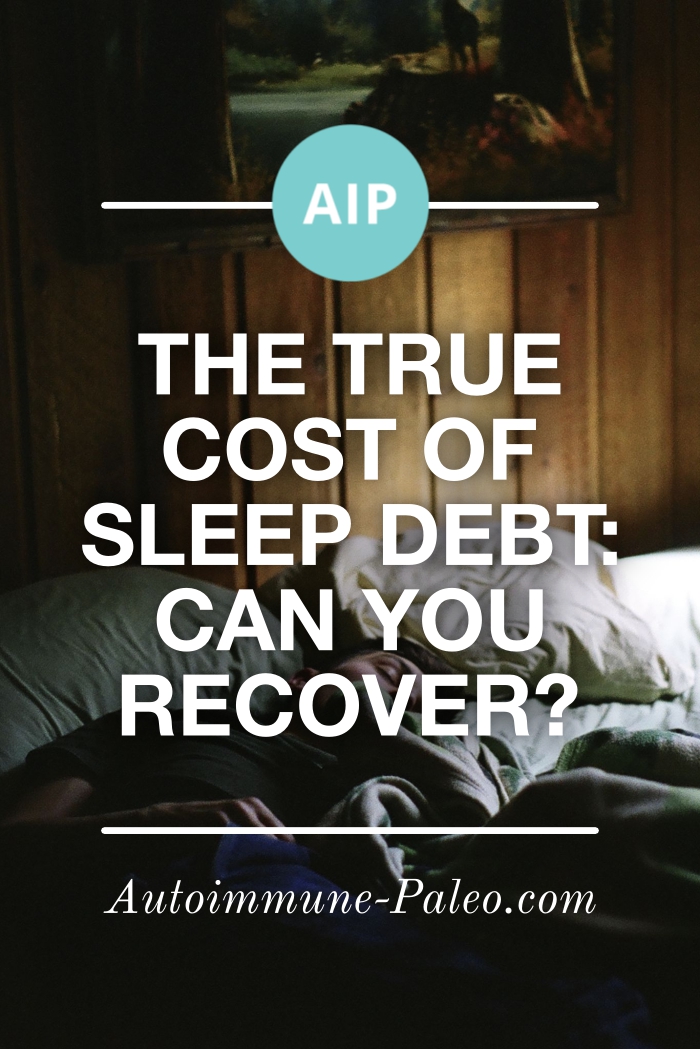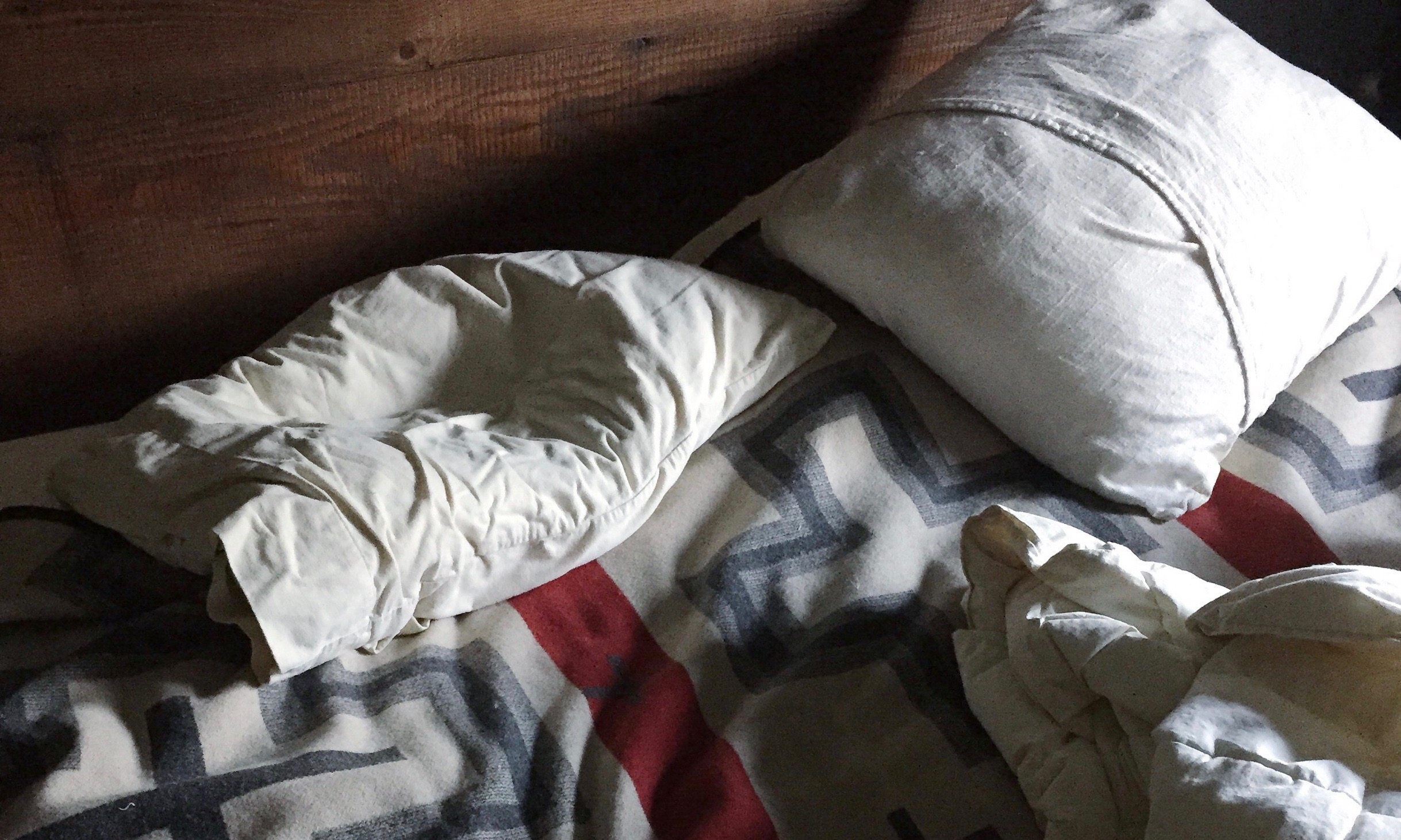When you know or suspect you have an autoimmune disease, so many things change — your shopping list, your approach to cooking, and the attention you pay to nutrition labels, to name a few. Even with this attention to detail, though, you may still be denying your body a critical aid in the fight against inflammation: the elusive practice of getting enough sleep.
As Mickey describes, sleep is particularly important for those with autoimmune disease. I want to talk about the cumulative effects of getting inadequate sleep, and how we can prevent these from compounding over time.
Part of the problem is that we find it so easy to sacrifice sleep. Sometimes, life interferes — the unfortunate reality of nighttime parenting, nagging work deadlines, never-ending household responsibilities, and the occasional insomnia. Or maybe we just want to spend a little more “me time” in the evening. If this is sounding familiar, you’re not alone:
- Americans are getting less sleep than ever before.
- Middle-aged Americans sleep on average one hour less each night than we did fifty years ago, and the number of people sleeping less than six hours per night is increasing.
- Forty percent of Americans (and 60% of women) are sleep deprived and on average we get about six and a half hours of sleep per night — many of us are getting less than five.
- It is clear that many of us are not getting enough sleep, and research is showing that our chronic sleep deprivation is causing irreversible damage to our health.
Slipping into sleep debt
It’s culturally acceptable to devalue sleep in America. When we experience sleepiness we usually know we are overtired, yet we dismiss the connections that sleepiness has to many health problems. We fuel up with coffee, tea, or energy drinks and push through. Many people even pride themselves on how little sleep they need to function! But poor sleep is nothing to brag about. Poor sleep quality and short sleep duration are associated with higher levels of inflammation and illness. Sleep should truly be one of the cornerstones of our health strategy.
The average amount of sleep that we need for optimum performance, health and safety on a daily basis is called our “sleep need” and is typically seven to nine hours per night. When we get less than our sleep need we build up what is called “sleep debt.” Sleep debt is the difference between the amount of sleep we should be getting and the amount we actually get.
As our sleep deficit grows, the consequences become more alarming. It starts with foggy thinking, daytime sleepiness, impaired attention, increased cortisol levels, a weakened immune system, accelerated aging, mood instability, impaired memory, and compromised judgment. All of these factors have dramatic implications for our quality of life and overall health. (Illustrating this point further, recent research suggests that those in poverty have an even harder time getting back on their feet when sleep deprived.)
In the long term, the low-level inflammation caused by sleep loss actually increases the risk of obesity, diabetes, cancer, and heart disease. Sleep deprivation has actually been shown to shed years off one’s life. This is all bad news! So, what can we do to improve things?
The complexities of sleep debt recovery
Many of us try to make up for sleep on the weekends or “when we get a chance” — but is that enough? Unfortunately, getting extra sleep does not necessarily restore all systems. Sleep scientists continue to discover the complexity of sleep deprivation recovery and how sleep debt is harder to repay than initially thought.
The news on “short-term” sleep debt is more hopeful. One study from the University of Chicago found that subjects who slept four hours nightly six days in a row developed higher blood pressure, increased cortisol levels, and weakened immune systems. The sleep-deprived subjects also showed signs of insulin resistance — a precursor of type 2 diabetes. All the changes were reversed when the students made up the hours of sleep they had lost. However, other short-term sleep loss studies have shown that baseline cortisol levels and attention span are not easily regained with sleep recovery.
Yet “short-term” sleep loss isn’t the category in which most of us fit. We are chronic offenders. Consider this — if we lose an hour of sleep every night for a year, that adds up to a sleep deficit of two full weeks. Some researchers say that if you build up more than twenty hours of sleep debt you may not be able to fully reverse its harmful effects.¹ Since having three kids, my sleep deficit has surely put me in bankruptcy status! And I’m quite disappointed that I’m not recovering from that anytime soon.
Although we may not be able to recover all functionality from high sleep deficits, we can begin to work our way out of the red by tacking on an extra hour or more of rest per night. So rather than binge sleeping, it is better to increase sleep over a long period of time. It can still take months to begin to feel rested and regain some functionality. Make sure to check out Mickey’s tips for getting a restful night’s sleep.
Re-investing in sleep
We need to fundamentally change our approach to sleep if we are going to achieve our best health. Dr. Lawrence J. Epstein, medical director of the Harvard Sleep Health Center, shares the following suggestions that have led him to successfully help many sleep-deprived individuals:
- Change your mindset. Many of us see sleep as an indulgence or a luxury. Remember that sleep is just as important for health as diet and exercise.
- Settle short-term debt. If you missed ten hours of sleep in a week, add three to four extra sleep hours on the weekend and an extra hour or two per night the following week until you have “repaid” the debt.
- Address long-term debt. Plan time off or a period of time with minimal work or obligations. Go to bed as soon as you are tired and turn off the alarm clock—sleep until you naturally wake.
- Avoid accumulating new debt. Determine your “sleep need” and factor it into your daily schedule. Try to consistently go to bed and wake up at the same time every day, or at the very least on weekdays.
I know it’s discouraging that we can’t perfectly recover from chronic sleep deprivation. However, I hope you are inspired to start chipping away at your sleep debt and to avoid accumulating new deficits. Let’s start viewing our “sleep need” as non-negotiable in our daily routines.
What are some ways that you can work to prioritize sleep in your life?
References
1. Kurt VonRueden, “Sleep Deprivation in the Workplace: The Hidden Side of Health and Wellness,” Proceedings of ASSE Professional Development Conference, Florida, Orlando, 11 June 2014.


















7 comments
Wow! Perfect timing for this post, Sarah! Just started a new job and life has been crazy. Needless to say, I have been sacrificing sleep even though I know it’s not good for me. Thanks for the inspiration to get back on track and make my beauty rest a priority.
Depressing. I’ve had chronic insomnia for years…… I’m so annoyed at all these sleep posts that assume that the only reason you don’t get sleep is because you don’t “prioritize” it. I wish I could just “tack on an extra hour or more”.
Couldn’t agree more!
Hi Susan! As someone who suffers from periodic insomnia that has nothing to do with prioritization, I feel your pain. This post doesn’t make an assumption–our culture is absolutely wired to discourage people from taking the time they need to get adequate rest. It is a fundamental part of the problem. Chronic insomnia is far beyond the scope of this post and should be addressed by a health care provider.
Susan, thanks for bringing that to my attention. I can see why you would be annoyed that the article didn’t address chronic insomnia–of course you want more sleep, but can’t! I could have better outlined the distinction between chronic insomnia and not prioritizing sleep. Point noted! Thanks for sharing.
I am in same page chronic insomnia & Hashimoto’s GERD , Endometriosis, wheat & fructose intolerance & all this deseases are very bad & killing me slowly because I stopped using all the prescription drugs that make me depressed or suicided when I take them ! Any suggestions ? besides Aip diet
Hi Elia,
I am so sorry to hear of your struggles, but I do want to make one thing clear – it is not wise to discontinue prescription medications without the consent/help of your doctor, and we *never* advise doing this on your own! I suggest working with your doctor to stabilize your health and keeping them informed of any lifestyle changes you decide to make on your own, like the elimination diet. We believe in using the best of both conventional and natural medicine to find our best health, and many people need prescription medication to get them through a rough patch, or even long-term even if they find optimal health with diet and lifestyle. Sending you healing vibes!